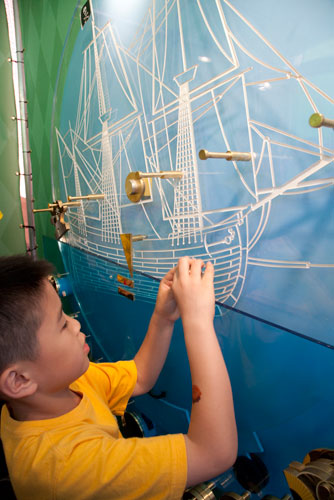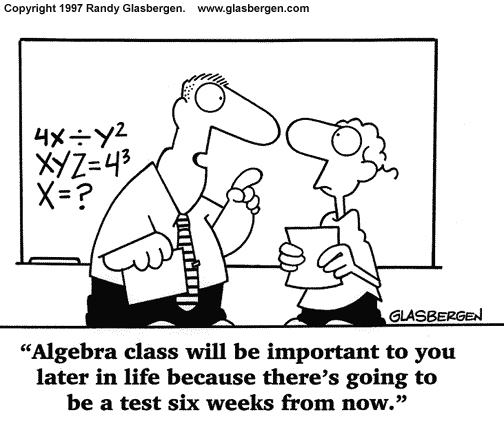The big fat x stands for how ineffective and outdated the older methods of teaching math (that I experienced) are. Research clearly shows that there are newer, more improved ways that math can be taught - ways that support transferable, relevant, meaningful knowledge that can actually benefit a student in the real world. These new and improved methods are crucial in order to prepare students, of a competitive 21st century generation, to succeed.
In terms of how I envision a math learning environment in my future classroom, I wish to create an environment where students are comfortable, engaged, stimulated, and motivated. I don't want students to have the same anxiety about mathematics that I held growing up. I would like my students to have confidence in math and regardless of if they proceed to enter a field where math is involved, I would still like them to possess a liking for math and problem solving skills that can be applied to any circumstance or situation. Students need to learn how to learn and develop mathematical skills that are useful not only in school, but in the real world.
In an ideal math environment, I would like technology to be used. I'm a firm believer that technology can benefit learning, so why not incorporate it into a math environment? This is especially important in a generation that functions digitally. My generation lives, eats, and breathes technology, but it seems that the following generation is even more surrounded by technology, so it is essential that as teachers we recognize this and integrate technology and math.
Next, I would like to offer a math environment that is interactive. I don't want students sitting in their seats completing questions from text books (how boring). In my math class, math would look more like the following....




Next, I would like to offer a math environment that is interactive. I don't want students sitting in their seats completing questions from text books (how boring). In my math class, math would look more like the following....



I hope I have the discretion, materials, and opportunity to create an updated, fun, 21st century, engaging, and interactive math environment, where I can actively encourage transferable knowledge.






